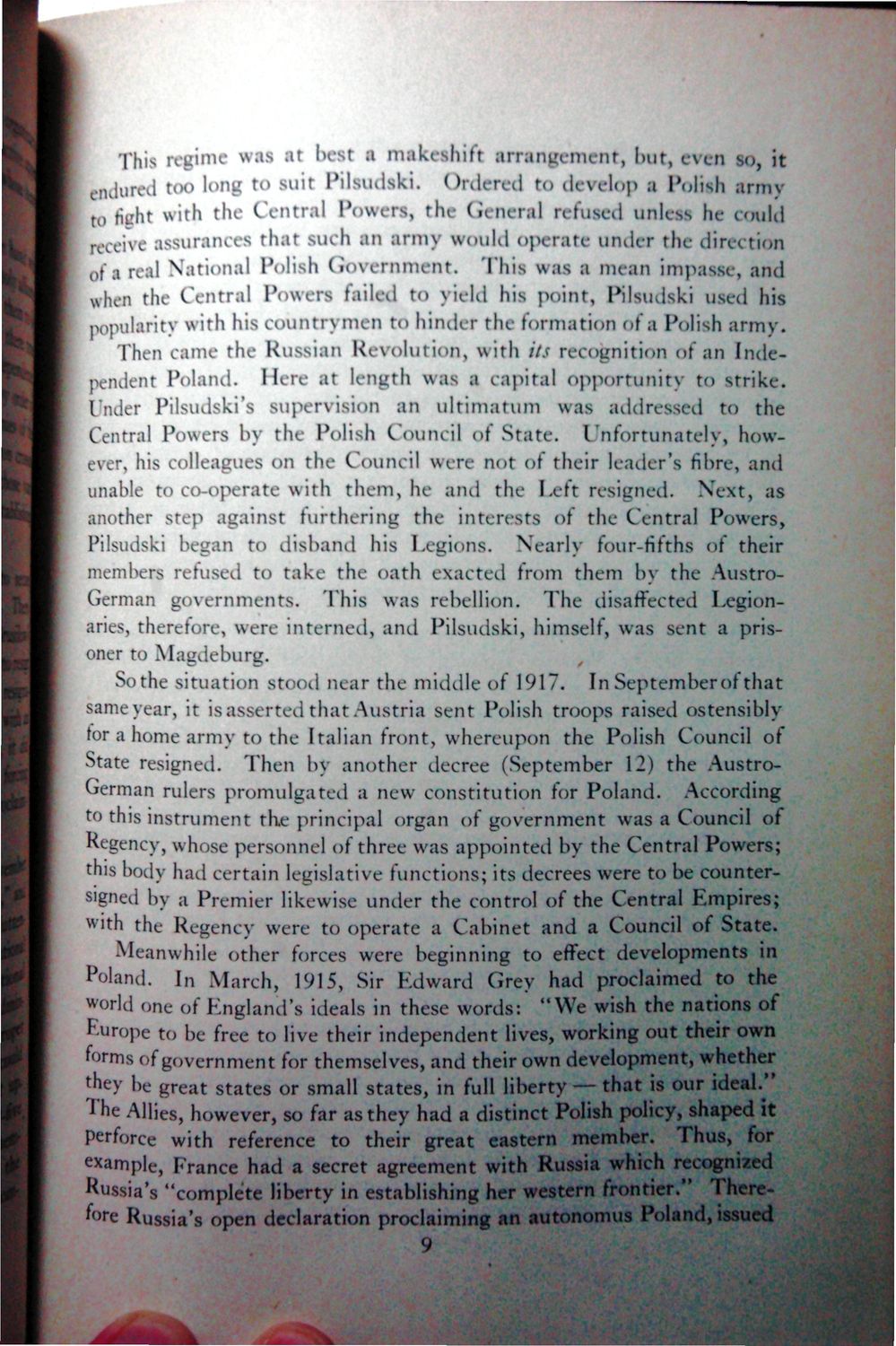| |
| |
Caption: War Publications - WWI Compilation 1923 - Article 24
This is a reduced-resolution page image for fast online browsing.

EXTRACTED TEXT FROM PAGE:
I This regime was at best a mak< shift arnumement, hut, even so, it endured too long to suit Pilsudski. < >rdered to develop a Polish army to rteht with the Central Powers, tin ( J u u i a l refused unless he Could receive assurances that such an army would operate- under the direction of a real National Polish (iofernment. This was a mean impasse, and when the Central Powers failed to Meld his point, Pilsudski used his popularity with his countrymen to hinder the formation of a Polish army. Then came the Russian Revolution, with its recognition of an Independent Poland. Here at length was a capital opportunity to strike. Under Pilsudski's supervision an ultimatum was addressed to the l\:--:\i! I\>\\i:-s h\ tin Poli h Council of State. Unfortunately, however, his colleagues on the Council were not of their leader's fibre, and unable to co-operate with them, he and the Left resigned. Next, as another step against furthering the interests of the Central Powers, Pilsudski began to disband his Legions. Nearly four-fifths of their members refused to take the oath exacted from them bv the AustroGerman governments. This was rebellion. The disaffected Legionaries, therefore, were interned, and Pilsudski, himself, was sent a prisoner to Magdeburg. So the situation stood near the middle of 1917. In September of that same year, it is asserted that Austria sent Polish troops raised ostensibly tor a home army to the Italian front, whereupon the Polish Council of State resigned. Then by another decree (September 12) the AustroGerman rulers promulgated a new constitution for Poland. According to this instrument the principal organ of government was a Council of Regency, whose personnel of three was appointed by the Central Powers; this body had certain legislative functions; its decrees were to be countersigned by a Premier likewise under the control of the Central Empires; with the Regency were to operate a Cabinet and a Council of State. Meanwhile other forces were beginning to effect developments in Poland, In March, 1915, Sir Edward Grey had proclaimed to the world one of England's ideals in these words: " W e wish the nations of Europe to be free to live their independent lives, working out their own forms of government for themselves, and their own development, whether they be great states or small states, in full liberty — that is our ideal. 1 he Allies, however, so far as they had a distinct Polish policy, shaped it Perforce with reference to their great eastern member. Thus, for example, France had a secret agreement with Russia which recognized Russia's "complete liberty in establishing her western frontier." Therefore Russia's open declaration proclaiming an autonomus Poland, issued 9 » *
| |